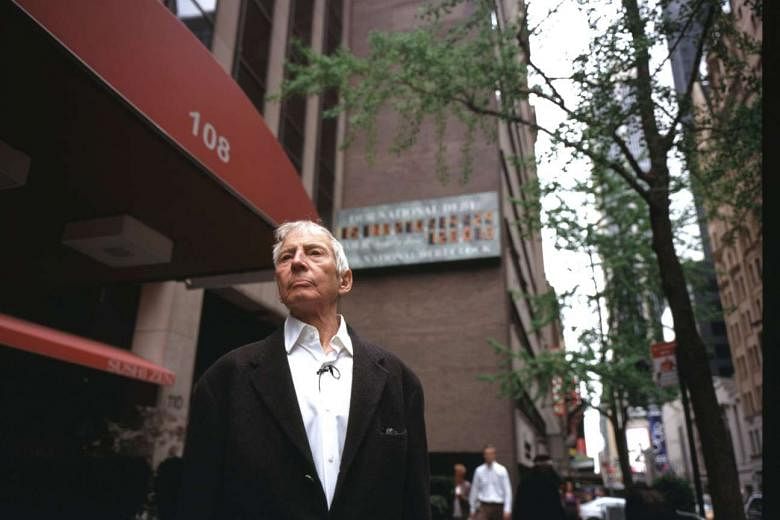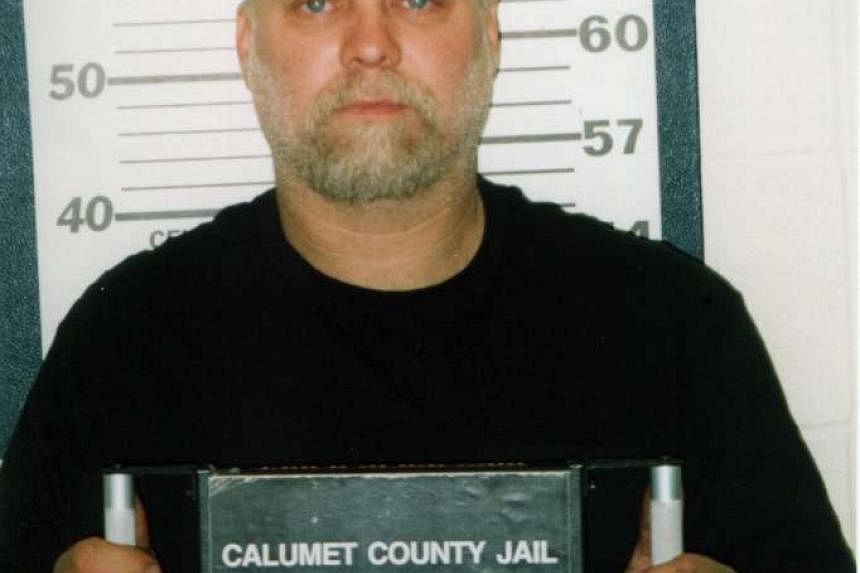The true-crime genre is having a moment.
The Making A Murderer documentary series, which has whipped viewers into a frenzy over a 10-year-old murder case in the United States, has become the most talked-about television show in the country in recent months.
Its suggestion that Wisconsin resident Steven Avery may have been jailed for a murder he did not commit has turned legions of fans into armchair detectives bent on re-examining the details of the case, with many concluding that he is innocent and pressuring the authorities to do something about it.
The series, available in Singapore on Netflix, follows the success of the equally explosive docu-series The Jinx, which aired on HBO last year and appeared to show murder suspect Robert Durst admitting his guilt on tape.
Both TV shows come on the heels of the wildly popular Serial, which ignited the true-crime trend in 2014, when its look at a 1999 high-school murder mystery made it the most downloaded podcast in the world.
Speaking to The Straits Times in Los Angeles earlier this month, Making A Murderer documentarians Laura Ricciardi and Moira Demos say narratives like these strike a chord with viewers because they are often underdog stories.
The producers behind upcoming TV drama American Crime Story: The People Vs OJ Simpson believe the current popularity of the genre speaks to growing misgivings about the US criminal justice system.
Ricciardi and Demos, who wrote and directed the series, were speaking shortly after they were grilled by a panel of US television critics about their acclaimed but controversial series - a stranger- than-fiction tale of a man, Avery, who spent 18 years in jail for a wrongful 1985 sexual assault conviction that DNA evidence eventually cleared him of.
Shortly after his release, he was accused, along with his nephew Brendan Dassey, of raping and murdering a local photographer named Teresa Halbach.
The series suggests that the authorities in Manitowoc County, Wisconsin, may have framed him in both of the cases and extracted a forced confession from his nephew.
Making A Murderer has been hotly debated in the media because of the miscarriages of justice it purports to highlight as well as claims from a former prosecutor that the documentary left out evidence suggesting Avery's guilt.
But Ricciardi and Demos, who worked on the series for the better part of a decade, stand by their assertion that they left out no crucial facts, even though they had to make some omissions while condensing a six-week trial down to 10 hours on screen.
They also say they are not trying to solve Halbach's murder, nor are they necessarily making a case for Avery's innocence or guilt.
Instead, their goal is to ask questions about the validity of the state's case against him and Dassey.
"I think it's important to focus on the word 'innocent' because Moira and I have no idea what happened to Teresa Halbac. We were not with her that day and we do not know who was responsible for her death," Ricciardi says.
"So when you look at Steven Avery and Brendan Dassey, who were both accused of killing her, the question becomes: Did the state present enough evidence to prove beyond a reasonable doubt that these two were responsible for her death? That's a very different question and I think it's an important distinction to draw."
She says this approach distinguishes Making A Murderer from the podcast Serial, whose creator and narrator Sarah Koenig "was very much on her own journey to understand the investigation into who killed the victim, Hae Min Lee".
"But again, from our perspective, we were never in a position to investigate Teresa's death and that was never our goal," Ricciardi says. "What we took on was documenting, verite style, what was unfolding in the Halbach case from the day we started shooting, which was Dec 6 of 2005. So we were in the best position to witness the prosecution of these two individuals and question to what extent that process was fair."
Asked to explain the current popularity of true crime, co- director and writer Demos says: "True crime has been around for a long time and it's always been a popular genre. But it's true that we are at a specific moment now with Serial and The Jinx and, I would argue, with what's going on the world today.
"Most true crimes are often stories that allow an exploration of the underbelly of society or the part of society that often doesn't get a lot of screen time or time in literature," she says, referring to the fact that Avery and Dassey are both poor, uneducated and have low IQ.
While the story of The Jinx is about an heir to a property empire, she adds, "often the protagonist is from an underclass or it's an underdog story".
"I think most people feel like underdogs in their lives - they feel like everything's against them, they want fairness. This is something that people can latch on to."
American Crime Story, a star- studded, true-crime anthology drama that premieres in Singapore on Feb 18, also concerns itself with larger themes than the guilt or innocence of a murder suspect.
In its first season, it will examine the divisive 1994 to 1995 murder trial of athlete O.J. Simpson, a case that had millions of Americans glued to the court proceedings and other developments on TV.
Creator Larry Karaszewski says the show wants to explain why a jury acquitted Simpson, played by Cuba Gooding Jr, even though there was so much evidence against him and the prosecution thought it had an air-tight case.
Co-creator Scott Alexander says the series, which co-stars John Travolta and David Schwimmer, will re-examine the evidence and procedures that intrigued America back then.
But the bigger ideas it wants to highlight are "the class differences between the lawyers, the beginnings of celebrity culture and 24-hour media, and police violence against blacks in Los Angeles".
Police violence against blacks, he and Karaszewski felt, "was the big overarching idea for the show - this is why it opens with footage of the Rodney King beatings and the Los Angeles riots" that took place a few years earlier, even though these may seem unrelated to the Simpson case.
American Crime Story executive producer Brad Simpson believes the demand for true-crime series is driven by the fact that Americans "are interested in stories about justice and injustice right now".
"We have been through a complicated 15 years. Broken is the social contract where you were told if you acted a certain way, went to this college and worked hard, you were going to get certain things in life. In general, I think people are interested in this idea of justice.
"And what's interesting is that a lot of the things we're thinking of as true crime right now aren't the traditional true crime where you catch the bad guy and he goes to prison. With Serial, Making A Murderer and American Crime Story: The People Vs OJ Simpson, there's a lot of ambiguity and there're lots of questions about the justice system."
He links this to the recent wave of high-profile cases and videos documenting alleged police misconduct and racial bias.
"In America, with all these viral videos that have come out, this idea about police and prosecutorial misconduct and the idea that your experience with the justice system is different based on who you are, racially and economically, is something that's resonating.
"So it's not just a true-crime explosion. It's a particular type of true crime that's about the wheels of justice and whether they work."
• Making A Murderer is available on Netflix. American Crime Story premieres in Singapore on Fox Crime (StarHub TV Channel 503) on Feb 18 at 10pm.


